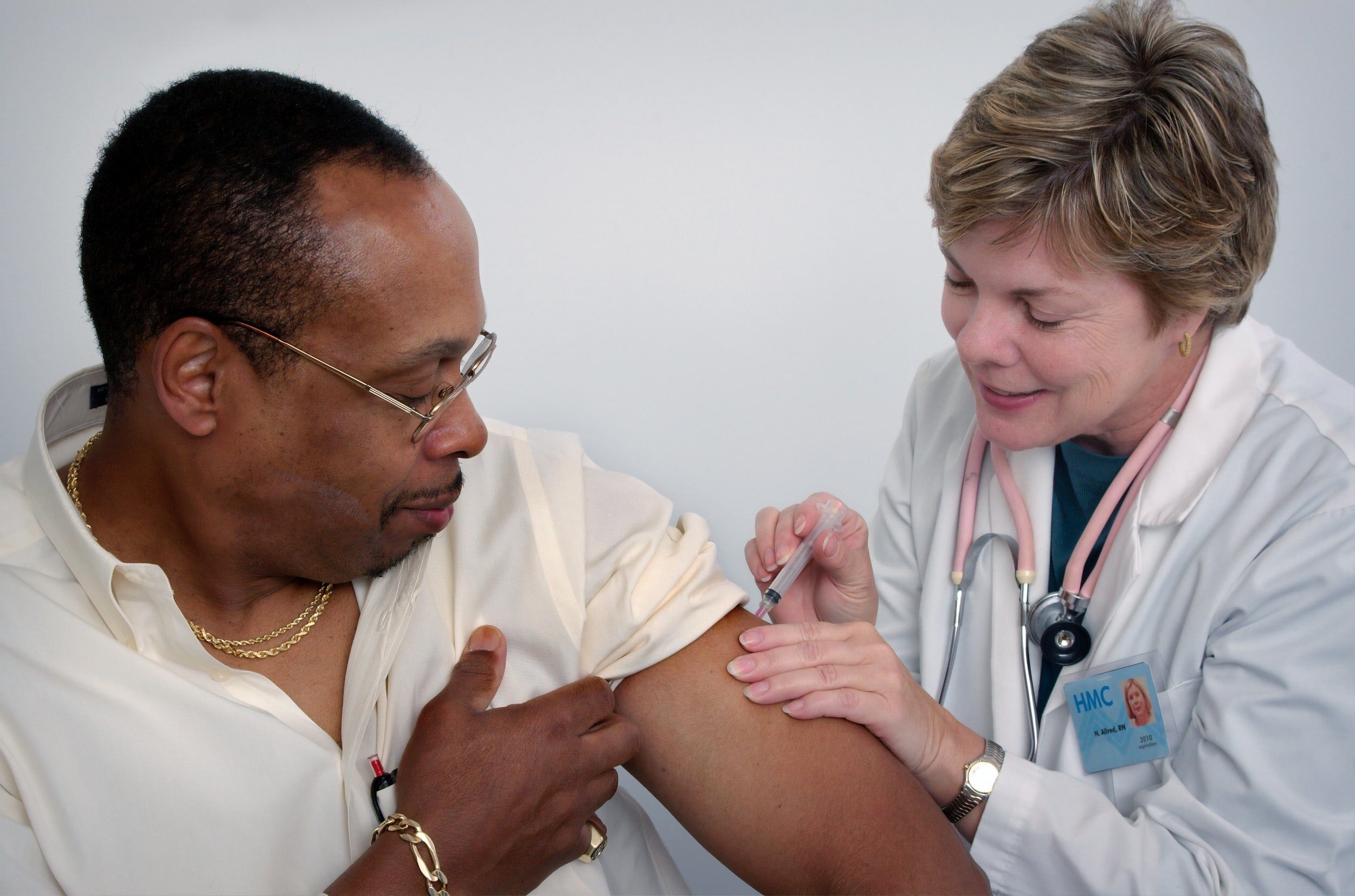
March 18, 2024
By Adjoa Kyerematen
National Minority Quality Forum Announces 2024 “40 Under 40 Leaders in Minority Health” Award Recipients
Read More

17 May 2021
By Gary A. Puckrein, PhD
Communities of color have borne a disproportionate burden of the COVID-19 pandemic. Although large numbers of Black and Hispanic people have kept essential industries operating through the pandemic, and are continuing to work on the front lines today, they are receiving smaller shares of vaccinations, compared to their share of the total population, and to their shares of COVID cases and deaths.
To expand vaccine access in communities of color and to close vaccination disparity gaps, all levels of government must think outside the box. The National Minority Quality Form (NMFQ) believes that workplace vaccination clinics for essential workers and their families are a promising approach for reducing barriers to vaccine access.
We know that people of color are over-represented in lower-paying and front-line roles. Getting vaccinated in the workplace eliminates the painful trade-off between these workers’ paycheck and their health. Hearing about positive vaccination experiences from multiple co-workers may also help overcome hesitancy and fear. Finally, workplace vaccinations would take the burden off community vaccination sites, allowing neighborhood providers to focus on the hardest-to-reach individuals.
Workplace vaccination clinics have not received the attention they deserve as a tool for narrowing racial access gaps. Neither the federal government nor the states have created a clear path for interested employers to receive vaccines for their workforce. The CDC’s current guidance for workplace vaccination clinics directs employers to contact their local health department, leaving even the most sophisticated and well-resourced businesses to compete for attention from thinly stretched local health authorities.
The Biden Administration and Governors can unlock the promise of workplace vaccination by creating clear mechanisms for employers and their health care partners to apply for and receive vaccines.
The federal government should dedicate a portion of federal vaccine allocations specifically to employers in essential industries. Currently, Federal Pharmacy Program (FPP) participants can use a portion of their federal allocations for employer-sponsored vaccination events, but they are not expected or required to do so. In addition, employers are likely to partner with occupational health providers, who already handle workplace flu vaccinations or COVID-19 testing for them. Those non-pharmacy providers are unable to participate in the FPP and therefore locked out of any direct federal allocation. Direct federal vaccine allocation would especially encourage employers with large essential worker populations and operations in multiple states to set up on-site vaccination opportunities for workers and their families.
State leaders should create state-wide processes and guidance for employers and their health care providers. Coordinating vaccine allocation with local health authorities (LHA’s) is a barrier to setting up vaccination events for any employer with multiple locations in a single state. With more than 5,000 local health authorities across the United States, a multi-state employer faces an untenable patchwork of local entities. Being able to apply for and receive vaccines from the state empowers employers and relieves the burden on already over-stretched LHA’s.
The federal government should direct states to prioritize employer-sponsored vaccination events as a tool for closing vaccine access gaps and reaching essential workers. With vaccine supply expanding and eligibility open to all adults, states must empower willing employers to host vaccinations on-site for essential workers and their households. Simply dedicating capacity at mass vaccination sites for employers is not sufficient, as it creates unnecessary barriers for the worker (time away from work, transportation, etc) and limits the benefit of peer-to-peer information sharing in the workplace. In addition, many states that previously prioritized populations based on age, went straight to eligibility for all, never providing a dedicated opportunity for essential workers to access vaccination appointments. Prioritizing employer-sponsored vaccinations can help address this disparity.
NMQF urges federal, state and business leaders to incorporate workplace vaccination events into their vaccination equity efforts. Government leaders and employers must work together to close vaccination disparity gaps and eliminate barriers to vaccine access for people of color.
Enjoy This Post? Read More Articles Below